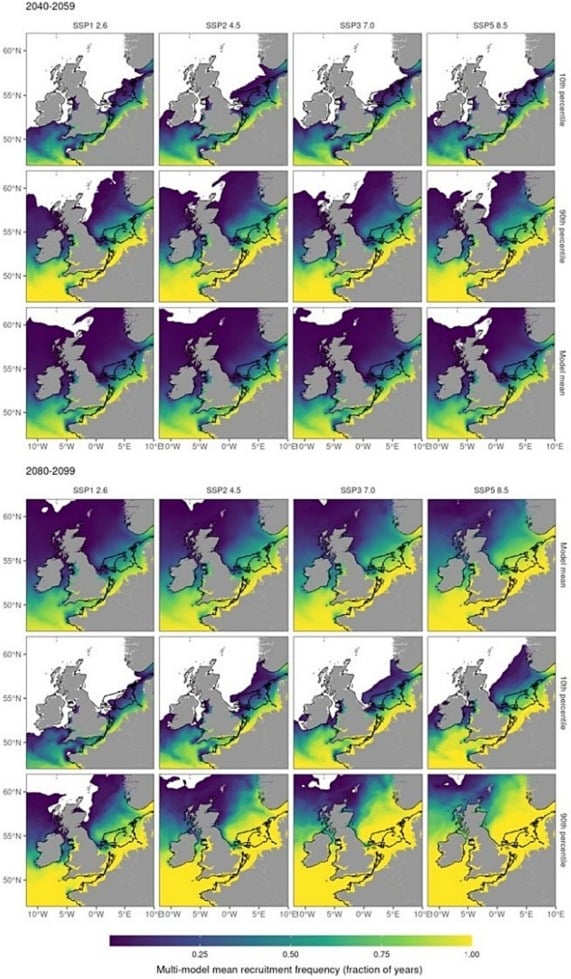FULL PAPER HERE
Recent research reveals a somewhat unsuprising trend: as sea temperatures rise in the northwest European shelf due to climate change, the non-native Pacific oyster is expected to expand further northward. However, this projection does come with inherent uncertainties that challenge ecosystem management.
As the climate changes, the increasing water temperatures are predicted to make the coastlines of the UK more suitable for the warm water preferring Pacific oyster. Depsite some uncertainty all the future models predict a progression of the oysters range further north across the British Isles.
While strides have been made in understanding climate uncertainties, ecological uncertainties remain a key challenge. Determining the temperature thresholds for Pacific oyster spawning and assessing the viability of populations under future climate scenarios are ongoing concerns.
Future improvements in global climate models offer hope for refining ecological projections. However, challenges such as the “hot-model” problem necessitate a nuanced approach to model weighting.
In conclusion, embracing uncertainty and leveraging diverse climate models can enhance our understanding of future ecological changes. By acknowledging uncertainties, we can better prepare for the impacts of climate change on species distributions.
This research begs the question for the UK shellfish industry and government alike, if our changing climates and oceans will inevitably result in the natural spread of pacific oysters, then why are our oyster producers and industry being unnecessary constrained?
